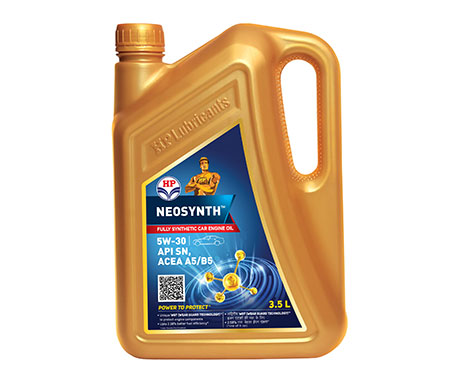Choosing the right engine oil is crucial to maintaining your vehicle’s performance, efficiency, and longevity. Among the most commonly recommended motor oils in today’s automotive world is 5w30 engine oil. Known for its versatile viscosity and high performance in a wide range of temperatures, 5w30 is suitable for a broad spectrum of vehicles.
In this article, we’ll break down what 5w30 engine oil means, how it works, its benefits, where it is commonly used, and why it's a top choice for many car owners and manufacturers.
Understanding the 5w30 Viscosity Rating
The term "5w30" refers to the oil’s viscosity grade, which is determined by the Society of Automotive Engineers (SAE).
- The "5w" indicates the oil’s viscosity at cold temperatures. The "w" stands for winter, and the lower the number before it, the better the oil flows in cold starts.
- The "30" refers to the oil’s viscosity at operating temperature (typically 100°C). A higher number means the oil is thicker at high temperatures.
This means 5w30 engine oil provides excellent flow during cold starts and remains thick enough to protect the engine at normal operating temperatures. It strikes a good balance between cold-weather performance and high-temperature protection.
Benefits of 5w30 Engine Oil
Excellent Cold Start Performance
5w30 engine oil flows easily in low temperatures, reducing engine wear during startup. This makes it especially valuable in colder regions where cold starts are frequent and challenging.
Strong High-Temperature Stability
Even in hot climates or when the engine is under stress, 5w30 maintains its protective film. It offers consistent lubrication, which helps minimize friction, overheating, and long-term engine wear.
Improved Fuel Efficiency
Because 5w30 is not overly thick, it reduces drag within the engine, which can enhance fuel economy. Many automakers recommend 5w30 in vehicles designed for better fuel efficiency.
Cleaner Engine Operation
Many 5w30 engine oils include detergents and additives that reduce sludge, varnish, and deposits. This keeps engine components cleaner and operating more efficiently.
Compatibility with Modern Engines
5w30 is often the factory-recommended grade for many new vehicles. It works well with both petrol and light diesel engines and supports advanced technologies like turbocharging and direct injection.
Common Applications of 5w30 Engine Oil
Passenger Cars
Most mid-size petrol and diesel passenger vehicles are compatible with 5w30 engine oil. It is ideal for stop-and-go city driving and long-distance highway use alike.
SUVs and Crossovers
Larger vehicles that carry more weight and operate under different conditions also benefit from the protective properties of 5w30 oil.
Light-Duty Diesel Engines
5w30 engine oil can be used in some diesel engines, especially in urban-use vehicles designed for efficiency and cleaner emissions.
Motorcycles and Scooters
Certain motorcycle models, especially modern commuter bikes, may recommend 5w30 engine oil for smoother operation, depending on manufacturer specifications.
Synthetic vs Conventional 5w30 Engine Oil
- Conventional 5w30 is made from refined crude oil and is suitable for older engines or less demanding conditions. It typically needs more frequent oil changes.
- Synthetic 5w30 is engineered for higher performance. It resists breakdown, withstands higher temperatures, and offers extended oil change intervals. It is especially recommended for high-performance, turbocharged, and newer engines.
There is also a semi-synthetic version, which blends both types for balanced performance and cost-effectiveness.
Oil Change Intervals for 5w30 Engine Oil
Oil change intervals depend on the type of oil you use and your driving habits.
- Conventional 5w30 oil: Typically every 5,000 to 6,000 kilometers.
- Synthetic 5w30 oil: Often lasts 10,000 to 12,000 kilometers or more.
Always consult your vehicle’s owner’s manual for the recommended interval and ensure the oil brand meets API and OEM standards.
Comparison: 5w30 vs Other Grades
- 5w30 vs 10w30: 5w30 offers better cold-start performance, making it ideal for colder climates.
- 5w30 vs 5w40: 5w40 is thicker at high temperatures and may be better for heavily loaded or high-performance engines, while 5w30 is more fuel-efficient.
- 5w30 vs 0w30: 0w30 has even better low-temperature performance but is less common and more suited for extreme cold.
Considerations Before Using 5w30 Engine Oil
- Check your vehicle's manual or speak to a certified mechanic before switching oil grades.
- Always choose oil from reputable brands that meet the latest API SN, SP, or ILSAC GF-6 standards.
- Regularly monitor oil levels and quality to maintain engine health.
Final Thoughts
5w30 engine oil offers excellent cold-weather start-up performance, high-temperature stability, and fuel efficiency, making it a popular choice for everyday vehicles. It supports engine cleanliness, reduces wear, and performs well in both synthetic and conventional forms.
Whether you're driving in hot summers or freezing winters, 5w30 provides consistent, reliable lubrication across a broad temperature range. For anyone looking for a versatile, OEM-recommended oil that keeps their engine running smoother and longer, 5w30 engine oil is a smart, reliable option.





Comments